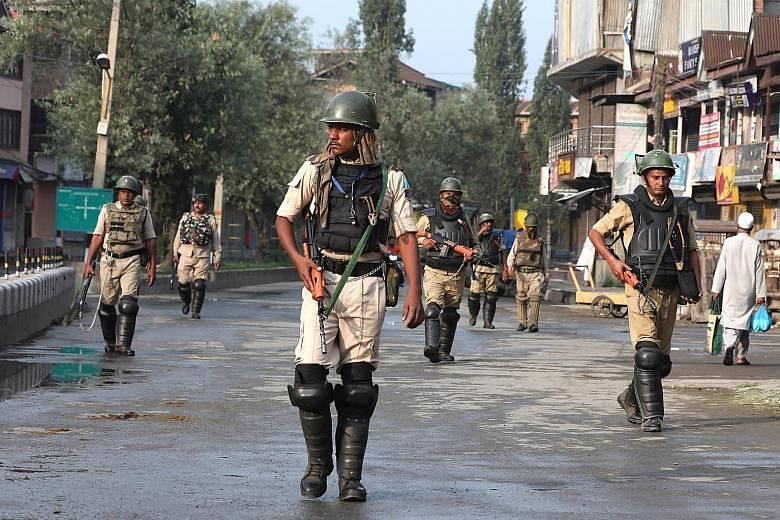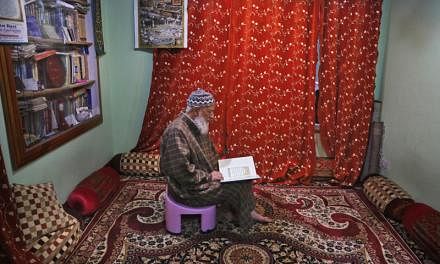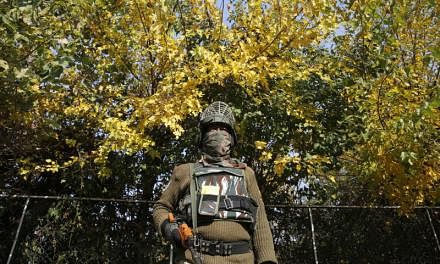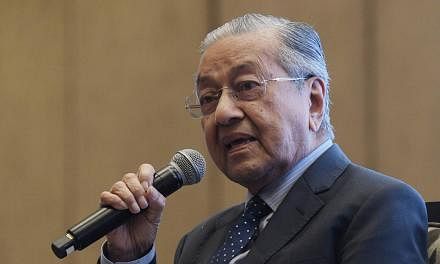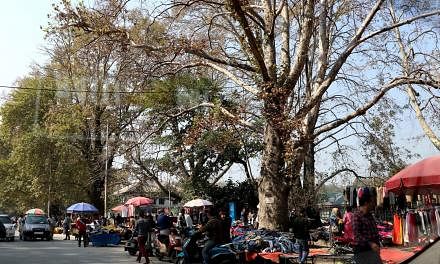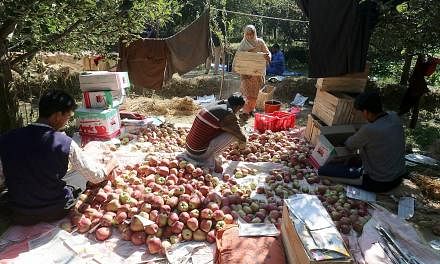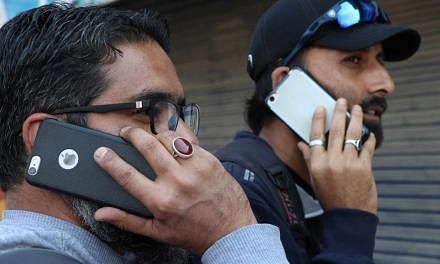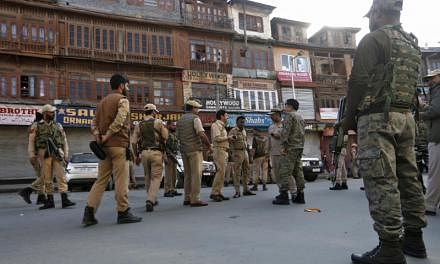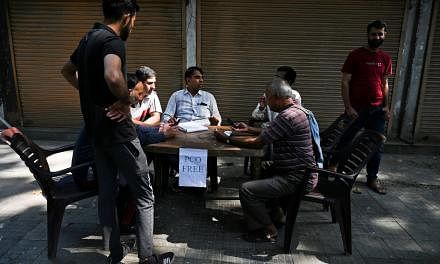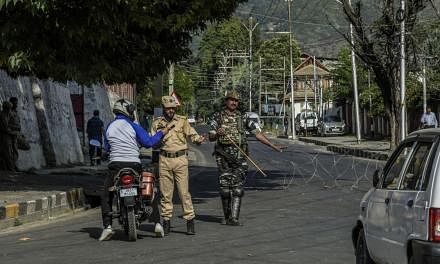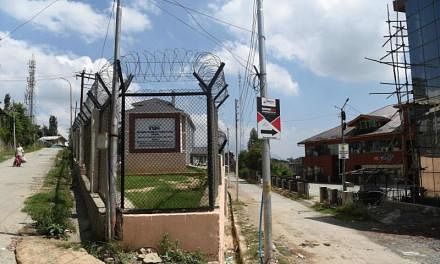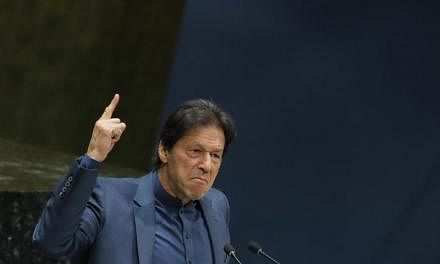SRINAGAR (India) • Tens of thousands of government forces in riot gear patrol Indian-controlled Kashmir. Streets lined with shuttered shops are deserted, steel barricades and razor wire cutting off neighbourhoods. An eerie silence is broken by an occasional security vehicle whizzing past or the cawing of crows.
An unprecedented security lockdown amid a near-total communications blackout entered a fourth day yesterday, forcing some news organisations to hand-carry dispatches out of the region.
The lives of millions of people in India's only Muslim-majority region have been upended since the latest - and most serious - crackdown followed a decision by New Delhi to revoke the special status of Jammu and Kashmir and bifurcate the state into two territories.
In central Srinagar, the region's main city, few pedestrians ventured out of their homes to navigate barbed-wire checkpoints guarded by helmeted soldiers in camouflage wielding rifles and protective shields. Shopping malls, grocery stores and even clinics were closed.
The communication blackout means that people within Kashmir cannot call one another or speak to friends and relatives outside the region, relying only on limited cable TV and local radio reports.
At the Shri Maharaja Hari Singh hospital in Srinagar, doctors told the Associated Press yesterday that at least 50 people had come in with wounds from pellet guns and rubber bullets.
Mr Razir Mir, 32, described hearing a loud bang on Monday and opening his front door to find his wife Rabiya "face down on the street". "Blood was pouring from her eyes," he said.
Ms Rabiya, who was left with blurred vision, said that after hearing the government's announcement that Kashmir's special status had been stripped, she thought to buy vegetables, anticipating a long curfew period in Srinagar.
"The moment I came out from my house, the soldiers out there shot at my direction," she said, as the couple's two-year-old cried.
Ms Rubeena Mehraj from central Kashmir was convalescing at the hospital after giving birth. "When I called for an ambulance, I started travelling to Srinagar because I was expecting, but the ambulance was stopped at so many (checkpoints) along the route that I gave birth inside the vehicle," Ms Mehraj said.
No news was coming out from elsewhere in the tense region. Police and paramilitary officials enforcing the restrictions said they were clueless about how long the curfew would continue. No official briefings for journalists were held nor curfew passes issued to any.
On Sunday, in the run-up to India's decision to revoke Kashmir's autonomy, the top commander of the largest rebel group in an audio statement called local police to "redeem" themselves by refusing to enforce New Delhi's orders.
"India can make changes on paper, but they can't change our sentiments for freedom," said the Hizbul Mujahideen's operations commander Reyaz Naikoo. "India has embarked upon plans to change Kashmir's demography, but India is fighting a lost war. They're here by deceit and deception."
Kashmir's fury at Indian rule is nothing new. Its roots lie in a broken promise of a United Nations-administered referendum guaranteed shortly after India and Pakistan gained independence from Britain in 1947.
The nuclear-armed neighbours have been unable to resolve their competing claims on the mountain territory divided between them.
The Indian side has experienced several separatist movements since then, including a bloody rebellion begun in 1989 to demand independence or a merger with Pakistan.
Tens of thousands of people have been killed in the uprising and the subsequent brutal military crackdown.
ASSOCIATED PRESS
